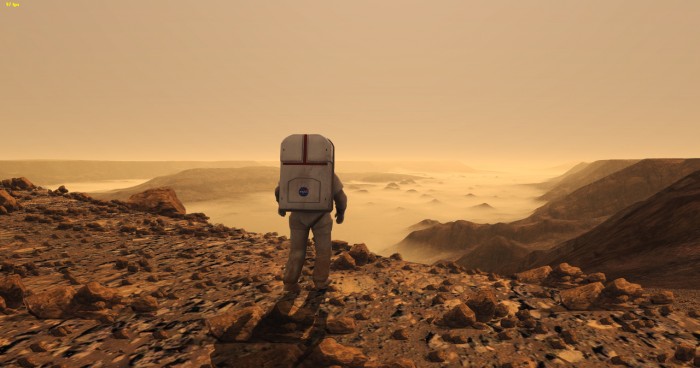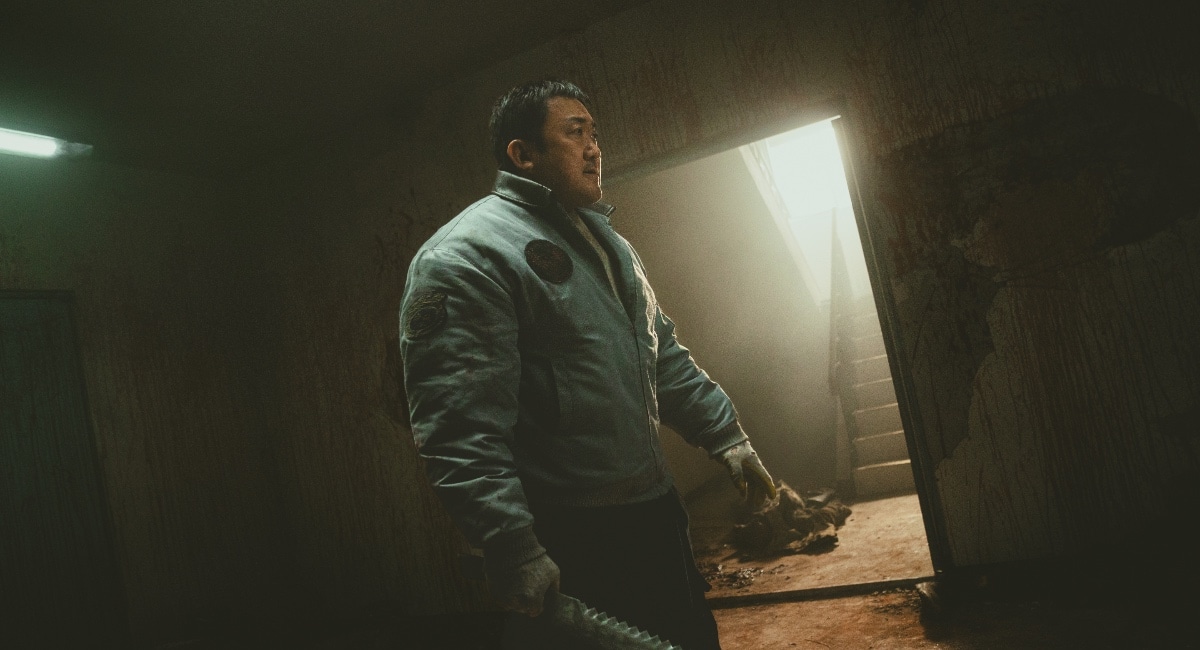The week of its release, and The Martian‘s science is already outdated by the recent discovery of water on Mars. Years from now, viewers will look back and shake their heads in disgust at the barren and dry depiction of the planet, along with the size and shape of cell phones, probably. Or the fact that we even had cell phones.
But we’ll forgive The Martian for being so last week. Why? Because this movie gets most of the important things right. Because intelligence can be a superpower. Because it’s really hard to be hopeful and optimistic without being cheesy. Because Matt Damon.
Above all else, The Martian is really a film about possibility. It’s a glass-half-full look at humanity told from three points of view. The first and primary POV is that of Mark Watney (Matt Damon), an astronaut/botanist who is mistakenly left for dead on Mars when his crew takes off in an emergency evacuation. Alone on a planet that is clearly uninhabitable, Watney puts his botany powers to use and decides to grow life on Mars (potato life, specifically). He also struggles to send signals of his survival back to Earth.
The second point of view is Watney’s crew; the ones who’ve left him behind. The Martian has an enormous cast, and this is where we see about half of it, including Jessica Chastain as the ship’s commander, Kate Mara, Sebastian Stan, Michael Peña, and Alex Vogel.
And lastly, we have the folks at on the ground. As NASA begins to detect anomalies on Mars, they work to figure out what happened to Watney and what, if anything, they can do to help. Or even let him know they’re watching. Jeff Daniels plays the head of NASA, who you’d be right to confuse with his character from The Newsroom – they’re played virtually identically – along with Kristen Wiig, Chiwetel Ejiofor, and Sean Bean working at his side.
We’ve had one big space movie each year recently, with Interstellar being last year’s big one, and Gravity the year before that. Comparisons to Gravity are apt, but what The Martian really feels like is Ridley Scott’s homage to Ron Howard and Apollo 13. Armed with a solid script that Drew Goddard adapted from Andy Weir’s novel and a perfect lead in Matt Damon, Scott pulls out one of his better films in recent years, managing to strike a tone that’s humorous in spite of its bleakness. When Watney realizes how low his odds of survival are, rather than going for a single-tear-moment, he exclaims “I’m going to have to science the sh*t out of this.” It’s that kind of movie.
It’s hard to complain about any of the movie that takes place on Mars. Things on the ground are a little more mixed. Without giving away any spoilers, I’ll say some of the film’s better moments occur when we see how important Watney’s mission becomes to everyone on the planet; here we get a reminder of how much potential humanity has, at its best. But it’s also difficult to do a film like this one without massive amounts of exposition, and when scientists are using staplers and desk props to show the head of NASA how physics works, it all starts to feel a bit absurd. Donald Glover shows up at NASA briefly, in one of the many appearances that had me wondering why? Why is this a unique character in a movie with 30 characters? Can we consolidate just a bit here?
But the characters most short-changed by the overstuffed cast are those of Watney’s crew members, in what is likely the least successful part of the film. I honestly couldn’t tell you any of their names, including Chastain’s character, and I’m not sure Sebastian Stan spoke more than a few lines in the entire film. Their inclusion is necessary to the plot, but it felt like a story that should have focused solely on a more fleshed out version of the captain and abandoned all hope for getting to know the rest of the crew.
Complaints of overstuffing aside, The Martian deserves recognition for managing to identify and strike the perfect tone to differentiate itself from other space-based films. While it’s not likely to end up as an all-time favorite, it’s an entertaining crowd-pleaser that’s really hard to dislike, and one that provides hope: for space travel, for humanity, and of course most importantly, for an uptick in the quality of Ridley Scott’s future films.







